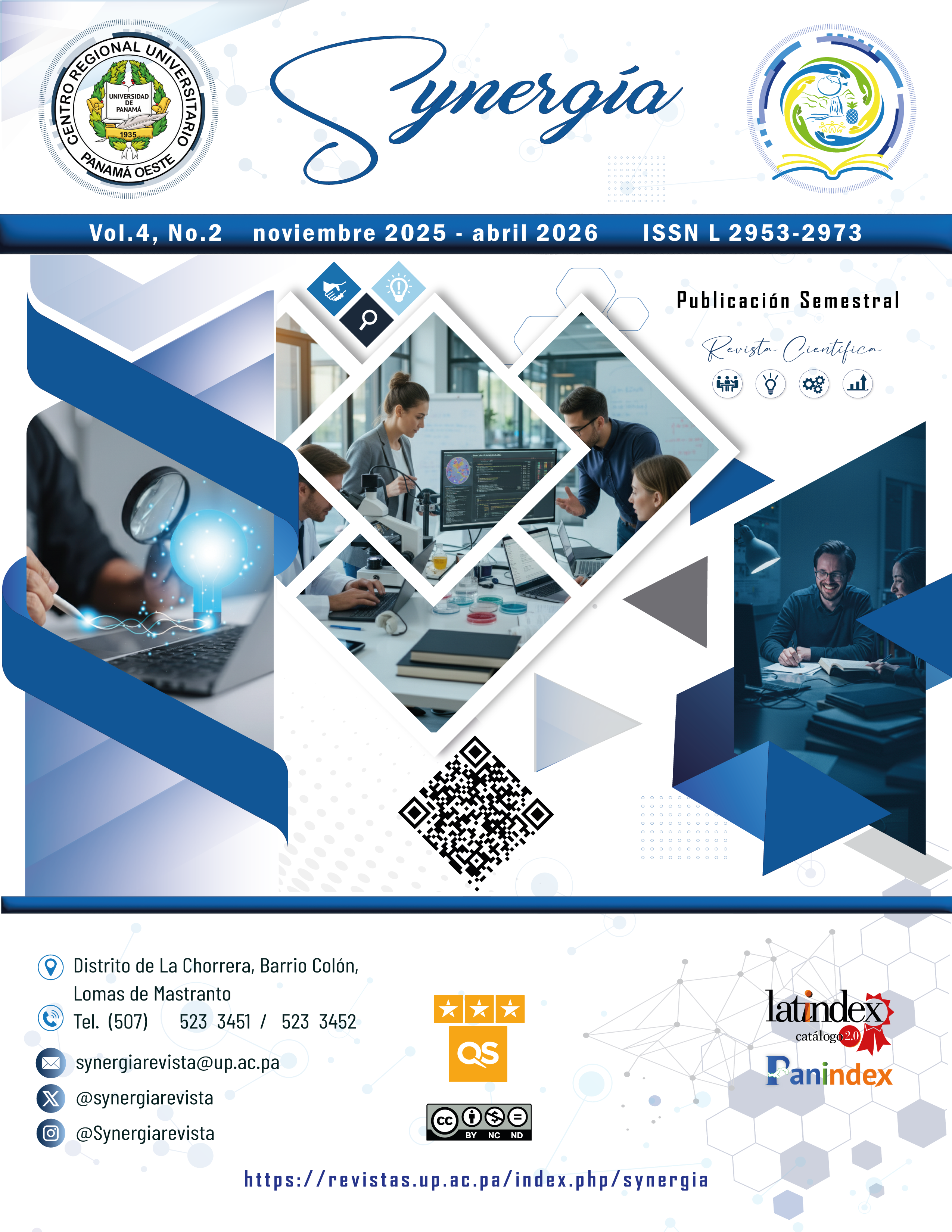

Copyright (c) 2025 Synergía

This work is licensed under a Creative Commons Attribution-NonCommercial-ShareAlike 4.0 International License.
This study examined the impact of Grammarly, a writing assistant powered by deep learning, on the quality of academic essays written in English by fifteen undergraduate students enrolled in the English program at the Regional University Center of Los Santos. Deep learning is a branch of machine learning that employs deep neural networks to process large volumes of data and identify complex patterns, enabling tools like Grammarly to provide immediate, accurate, and personalized feedback during the writing process. A quantitative quasi-experimental pretest–posttest design with a single group was implemented. Each participant produced two argumentative essays: one baseline essay and another after four weeks of guided use of Grammarly in academic tasks. Essays were assessed with an analytic rubric that measured grammatical accuracy, coherence, and cohesion, while a questionnaire explored students’ familiarity with and frequency of Grammarly use. Findings revealed a 48% reduction in grammatical errors per essay and an average increase of 0.8 points in coherence and cohesion scores (on a five-point scale), both statistically significant. Although 73% of the students reported awareness of Grammarly, only one third had used it prior to the study, highlighting a gap between knowledge and actual adoption. It is concluded that the pedagogical integration of writing assistants based on deep learning, supported by brief teacher training, can enhance linguistic accuracy and discourse development. Such integration represents an innovative strategy to strengthen academic writing competence in Panamanian higher education contexts.